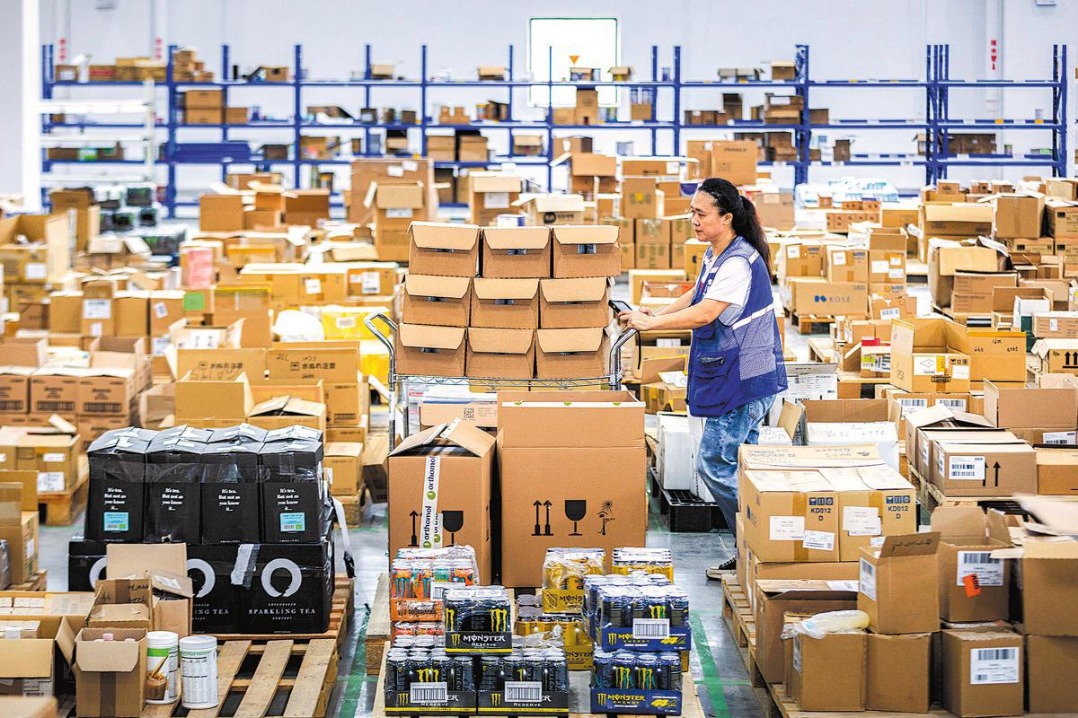Chinese consumers have shown rising demand for homegrown products and intelligent electronic devices featuring innovative technologies during this year’s June 18 shopping carnival, which experts said has played a vital role in stimulating consumers’ purchasing appetite and promoting the recovery of consumption.
Major Chinese e-commerce platforms have adopted a more pragmatic and simpler approach by canceling presale campaigns this year, with a key focus on cost-effective commodities and livestreaming to bolster sales, they added.
Experts also called for more supportive measures to expand employment, increase residents’ disposable incomes and boost spending on new energy vehicles and other big-ticket items, to further unleash consumers’ purchasing potential.
Data from e-commerce giant JD, which initiated the midyear promotional event, showed that the number of shoppers buying domestic brands surged more than 40 percent year-on-year over the weekslong gala, which kicked off at 8 pm on May 31.
Young Chinese consumers increasingly opt for high-quality homegrown brands, with spending from the post-1990s and post-2000s generations accounting for more than 55 percent of the total sales of domestic brands, JD said. Sales of artificial intelligence-powered computers and smartphones via JD’s online marketplaces soared 260 percent year-on-year in the first hour of the shopping festival.
According to Tmall, Alibaba’s business-to-customer platform, more than 37,000 brands saw their sales double during the midyear promotional campaign, while turnover of domestic brands such as Midea, Huawei and Xiaomi exceeded 1 billion yuan ($138 million). Outdoor sporting goods, consumer electronic products and nutrition and healthcare commodities have witnessed robust growth during the shopping extravaganza.
Online retailer Vipshop said sales of cycling clothes rose 54 percent year-on-year, while those of outdoor jackets were up 35 percent and running shoes, 30 percent, during the promotional gala, while turnover of clothing that integrates traditional Chinese elements with contemporary styles surged threefold from a year earlier.
“Consumption has become a major driving force for China’s economic growth, and the June 18 shopping festival is pivotal to stimulating consumers’ purchasing appetite and shoring up the economy,” said Wang Yun, a researcher with the Academy of Macroeconomic Research affiliated with the National Development and Reform Commission.
Jason Yu, general manager of Kantar Worldpanel China, a market research provider, said, “Price is a basic and core competitiveness for e-commerce platforms, as consumers are inclined to purchase premium products with high cost-effectiveness during the June 18 shopping festival.”
Yu said domestic brands have stepped up investment in technological innovation, research and development, while improving the quality of products to cater to demand from value-conscious consumers.
Ray Hu, partner of business consulting at global consultancy EY, said that as Chinese consumers are now more aware of purchasing value, major platforms have adjusted their promotional strategies by canceling the presale mechanism, aiming to increase price transparency.
Offline retail has been integrated more into this year’s online shopping festival than in previous years, said Hu.

